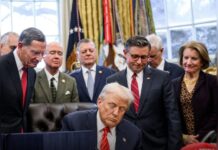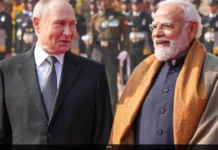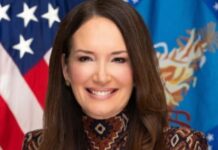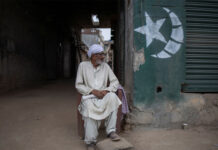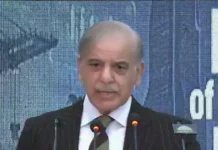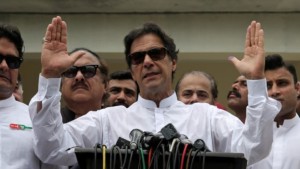 ISLAMABAD: Imran Khan was inching closer to form a government in Pakistan with the support of allies and independents even as a multi-party meeting called to devise a joint strategy over alleged vote rigging has been rejected the results of the polls and demanded “transparent” re-election.
ISLAMABAD: Imran Khan was inching closer to form a government in Pakistan with the support of allies and independents even as a multi-party meeting called to devise a joint strategy over alleged vote rigging has been rejected the results of the polls and demanded “transparent” re-election.
So far Khan’s Pakistan Tehreek-e-Insaf (PTI) has bagged 115 of the 270 National Assembly seats on which elections were held and was leading in another two were counting was still on. The PTI was followed by jailed former Prime Minister Nawaz Sharif’s Pakistan Muslim League-Nawaz (PML-N) with 64 seats and former president Asif Ali Zardari’s Pakistan People’s Party (PPP) with 43 seats. Independent candidates have won 13 seats, according to the election commission which has so far issued results for 267 seats.
Pakistan’s National Assembly comprises a total of 342 members, of which 272 are directly elected. A party can only form the government if it manages to clinch 172 seats in total. PML-N supremo Nawaz Sharif has reiterated his party’s allegations, saying the polls had been “stolen” and the “tainted and dubious” results would cast a “bad impact” on the country’s politics, according to a number of his party leaders who visited the Adiala jail in Rawalpindi to meet him.
Later in the day, a multi-party meeting called to devise a joint strategy over alleged rigging in the general elections rejected the results of the poll, demanding a “transparent” re-election. The meeting in Islamabad was chaired by PML-N president Shehbaz Sharif and Muttahida Majlis-i-Amal (MMA) president Maulana Fazlur Rehman. “It has been decided to reject the elections of July 25 because these elections are not based on the mandate of the people. The people have been robbed of their mandate,” he said.
“We demand that new elections should be held and we will hold protests in the country for new polls,” he said. The meeting was attended by Jamaat-i-Islami (JI) chief Senator Sirajul Haq, Sindh Governor Mohammad Zubair, Awami National Party chief Asfandyar Wali Khan, Qaumi Watan Party chairman Aftab Ahmad Khan Sherpao, National Party’s Senator Mir Hasil Bizenjo and several MMA leaders.
Mutahidda Majlis-e-Amal Pakistan (MMAP), an alliance of rightwing religious parties like Jamat-i-Islami and Jamiat Uleme-i-Islam Fazal, has clinched 13 seats while Pakistan Muslim League of former Punjab chief minister Pervaiz Elahi won four in the parliamentary polls. Karachi-based Mutahida Qaumi Movement (MQM) has won six seats. Senior PTI leader Jahangir Tareen made calls to MQM leaders after which the party decided not to attend a meeting of political parties called by the PML-N. However, senior MQM leader Farooq Sattar was present in the APC meeting.
In his first speech that was broadcast live via video link, Khan had claimed victory in the elections and said that he was ready to probe allegations of rigging in the polls. In the 342-member National Assembly, the PTI’s strength will be 160 after acquiring 29 women’s reserved seats and 4 or 5 reserved seats for minorities, according to experts.
Khan’s ally PML-Q has won five seats and it can also have one seat reserved for women. Sheikh Rasheed of the Awami Muslim League is already supporting Khan. The PTI is in contact with MQM, which has assured its support to Khan. Some independents are in talks with PTI and they are likely to extend their support to Khan, helping him attain the figure of 173 which is a simple majority, they said.
Some smaller Baloch parties could also support him. PTI spokesman Fawad Chaudhry said that they have the required numbers to form government at the Center, Dunya News TV reported. The elections for the parliament and four provincial assemblies were held and the announcement of the results has been marred by delays in transportation of results from polling stations to centralized election offices.
Khan chaired a meeting of the top PTI leaders at his Bani Gala residence where he was assured by them of having the numbers to form the government. The meeting also discussed possible Cabinet names. The results showed that in the provincial assemblies PML-N was leading in Punjab – the most populous province — with 129 seats in the house of 297, but fell short of a majority. The PTI with 123 seats is negotiating with independents, most of who parted ways with the PML-N before the polls and contested independently.
The independents with 29 seats are the third largest group and will play a crucial role in government formation in a province ruled by the PML-N for the last two terms from 2008-2018. Khan’s ally PML-Q has got seven seats in the province.
In the 297-member House, 149 seats are required to form the government. The PTI has already announced to form the government in Punjab, a move which may lead to allegations of horse trading. In Sindh assembly, the PPP has got a clear majority by winning 75 seats in the house of 131, followed by the PTI (23) and the MQM (16).
In Khyber-Pakhtunkhwa, the PTI has won a two-thirds majority by bagging 65 seats in the assembly of 99 members. In Balochistan, the newly-formed Balochistan Awami Party (BAP) is on top with 15 seats but failed to get a majority in the House of 51 members. PTI



